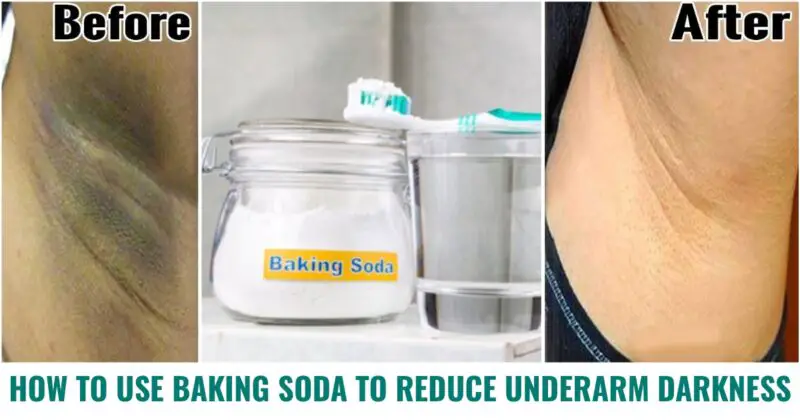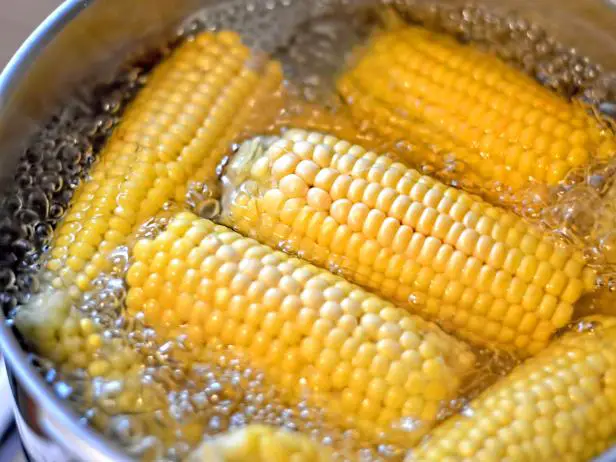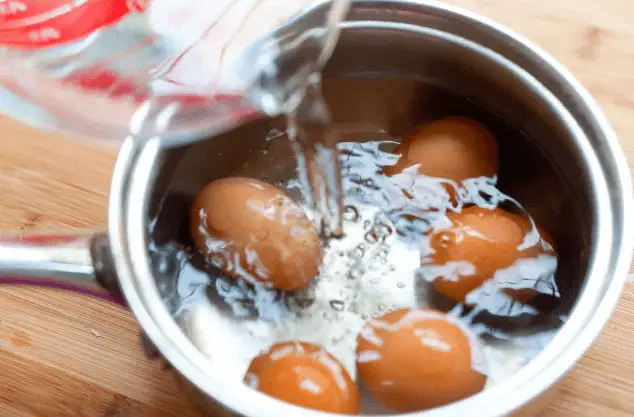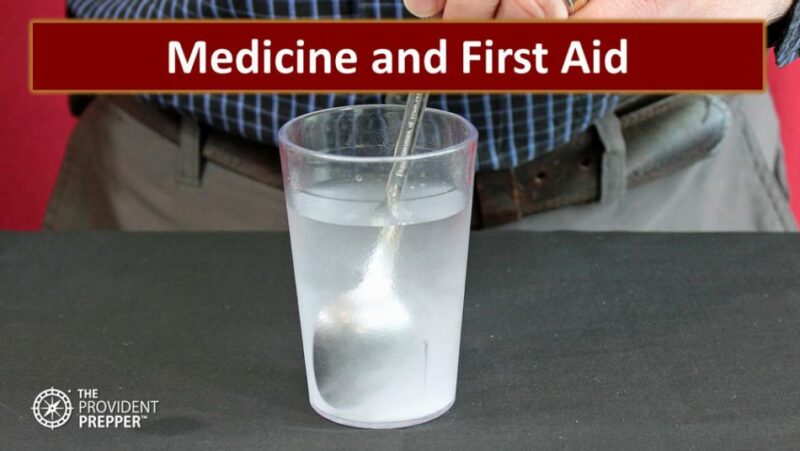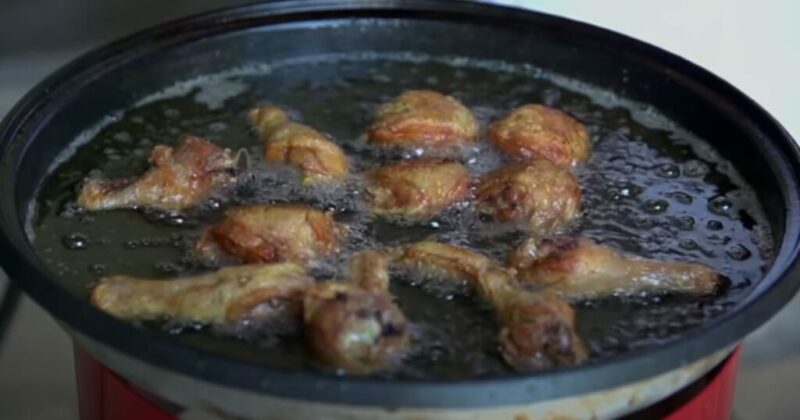Baking soda and baking powder have long been known for their versatility in culinary preparations, household cleaning, and beauty remedies. The two products are essential kitchen staples that can be used interchangeably in various recipes. However, when it comes to hair care, can you use baking powder instead of baking soda?
This article will explore the benefits of using both baking soda and baking powder on hair, their differences in composition, potential risks of use, and other natural alternatives for hygiene and beauty care.
Difference Between Baking Powder and Baking Soda
Baking soda (sodium bicarbonate) is an alkali compound with a pH level of 9.0. Its chemical properties help to neutralize acids by raising the pH levels in substances like vinegar or lemon juice. In contrast, baking powder is a mixture of sodium bicarbonate and cream of tartar or cornstarch.
When combined with water or another liquid extract, baking powder releases carbon dioxide gas bubbles that leaven baked goods. The difference between the two lies in their application: baking soda is good at removing unwanted buildups from hair due to its high alkalinity levels; however, using too much can lead to dryness and scalp irritation.
On the other hand, while baking powder may also help remove product buildup from hair, it does not have sufficient alkalic properties to combat excess oil production or treat dandruff effectively.
Benefits of Using Baking Soda on Hair
Removing Product Build-Up
Build-up from styling products like gels, hairsprays or conditioners can cause dullness by clogging your pores resulting in weakened hair follicles. Fortunately for individuals experiencing such difficulties due to product buildup on their scalp or hair strands themselves there is a natural remedy such as Baking soda.
To clear up build-up naturally try dissolving one tablespoonful amount into 16 ounces of warm water before shampooing your hair directly over your scalp and hair strands.
The high pH levels in baking soda work to remove excess oils, amongst other residues by making them more water-soluble. Rubbing it onto the head while massaging at the scalp and working it through to each hair strand is advised.
Cleaning Greasy Hair
Excessive production of sebum from the sebaceous glands can cause a greasy feeling on hair. Ideally, washing your hair with a regular shampoo once daily should keep it clean, but some sebum-producing individuals require more frequent washes than every 24 hours. However, consistently using harsh chemicals away from natural cleanings solutions can be damaging to both strands as well as your scalp.
Baking soda powder could bring about relief to individuals that face difficulties in their scalps being overly oily or greasy: mix a tablespoonful within two cups of warm water is enough to help dissolve grease and oil accumulation.
Allow the mixture to settle into any problem areas for at least five minutes before completely rinsing then conditioning as usual.
Treating Dandruff
Dandruff is caused when there is an overproduction of yeast on the scalp often causing dryness and white flakes to appear on the head or in ones’ hair. This skin condition leads primarily affected people turning towards shampoos containing anti-dandruff ingredients Carbocyclic acid or Pyrithione Zinc which can over dry the hair and damage its overall appearance
A Baking soda mixture with more soothing properties that could do just as much help minus harsh chemicals; by dissolving several tablespoons of Baking soda inside few cups of lukewarm water (one tablespoon per cup). Dip your fingers into this solution, massage this into lightly dampened wet hair whilst you leave for a couple of minutes before fully rinsing out.
The active ingredient sodium bicarbonate works to destroy fungal organisms that may cause dandruff. Luckily unlike other solutions one does not have to worry about drying their hair through constant use.
Possible Risks of Using Baking Soda on Hair
Hair Dryness
Continuous use of baking soda on your hair or scalp can cause excessive dryness, itching, and irritation when pH levels are tampered with. While using one tablespoon less than three times a week might help mitigate these harmful effects, keeping the correct proportions is essential. DIY enthusiasts should ensure that they comprehend probable complications before employing solutions.
Some experts also advise mixing baking soda with honey for a scalp treatment application. Honey has a high natural water concentration to keep the hair strands moisturized with the anti-inflammatory benefits.
Scalp Irritation
Baking soda is recognized as alkaline due to its efficiency in neutralizing acidity in household fabrics products, among other items such as acidic substances like lemon juice or vinegar. However, for those who may have highly sensitive scalps exposed to such high levels could lead to increased chances of irritation occurring.
Washing thoroughly for five minutes is recommended when used directly on the scalp—after rinsing thoroughly employ natural ingredients such as coconut milk: it contains natural moisture (as well as proteins) ideal for repairing any possible damages that might have been incurred from overuse.
The Effects of Using Baking Powder on Hair
Unlike baking soda’s numerous benefits when it comes to treating several hair defects aside from just removing buildups by combing multiple ingredients whilst applying them to your roots – say cornstarch or Oatmeal with warm water -you would add significantly more substance texture compared to flour-like builds from using baking powder in your solution.
Good cleaning spot uses are found with the Cornstarch method proving more effective at oil and grease removal than baking powder yet having other advantages including uniquely refreshing one’s scent through its aroma profile,
For Treatment Of Dandruff And Itchy Scalp Baking powder can control dandruff thanks due too how easily it can sunken-up sebum and exfoliate dead skin cells from the scalp. To use, mix three tablespoons of baking powder with one tablespoon of water, then directly apply the consistency mix gently but thoroughly unto your scalp taking care not to scrape off too much scale.
Gently massage this into your head in a circular motion for around 10 minutes before washing it off under lukewarm water, ensuring you get all remnants clear.
Another group has reported signs of reduced hair fall rates when applying these ingredients separately as a final wash method post regular shampoo conditioning from home remedies.
Other Alternatives For Hygiene and Beauty Care Apart From Baking Soda And Baking Powder
Natural hygiene and beauty practices while chemical and synthetic shampoos might sound ideal in theory can be time-consuming yet highly beneficial overall. Clean living advocates carry out small researches on household items such as vinegar, olive oil solutions for sterilization or naturally, infused herbal products that could help individuals keep to natural remedies altogether.
Natural Fluoride-Free Toothpaste Options For Oral Health
Most toothpaste commonly contains fluoride, which is great at reducing teeth decay rates since fluorine ions work by eliminating harmful bacteria in your mouth. Some individuals prefer avoiding it altogether though due to its possible side effects like unwanted calcification or thyroid disorder development concerns. Nature offers quite a variety of effective substitutes such as Activated Charcoal or Bentonite clay based toothpaste that could reduce chances of mercury poisoning along with providing healthy oral hygiene.
Natural Remedies for Lice Treatment
Standard shampoo treatments against lice often contain chemicals that could cause irritation or even problems with re-infestation if not appropriately handled. Thankfully natural products such as Tea Tree Oil mixed with essential oils like Lavender or Eucalyptus extract have been found viable non-toxic alternatives according to some studies – perfect for households outside conventional means.
Conclusion
Baking soda has many uses, including hair care. Its benefits include its ability to remove excess oils, clean greasy hair and treat dandruff naturally. However, overusing baking soda can lead to scalp irritation and excessive dryness. Baking powder might be less effective on hair due to its composition but can still be used for certain purposes like exfoliating the scalp.
If you’re looking for more natural alternatives for hygiene or beauty care practices outside of baking powders or sodium bicarbonate, vinegar extracts or Olive Oil could be useful household aids when making your shampoos. Other options such as nature-infused herbal products are also worth considering for people wanting gentler solutions avoiding chemicals in their everyday lives. Overall do consider making informed decisions that best suit you personally by better understanding product physics before employing them.
Q&A
Q1. Can I really use baking powder instead of baking soda for my hair?
Yes, you can! Although baking powder and baking soda may sound similar, they are different products with different chemical compositions. However, when it comes to cleaning your hair, both work similarly in terms of reducing oiliness and buildup.
Q2. How do I use baking powder as a substitute for baking soda in hair care?
Simply mix about 1 tablespoon of baking powder with enough water to make a smooth paste (you can also add other ingredients like apple cider vinegar or honey for extra benefits). Apply the paste to your scalp and massage gently, then rinse thoroughly with lukewarm water. Repeat once or twice a week as needed.
Q3. Are there any benefits to using baking powder on my hair?
Yes! Baking powder can help absorb excess oil and sweat from your scalp, as well as remove residue from styling products like hairspray or gel. It can also improve the overall texture and shine of your hair.
Q4. Are there any risks or side effects of using baking powder on my hair?
While baking powder is generally safe for most people to use on their hair, some might experience dryness or irritation if they overuse it or have sensitive skin/scalp. Additionally, if you have dyed or colored hair, you may want to avoid using baking powder too often as it could potentially fade the color over time.
